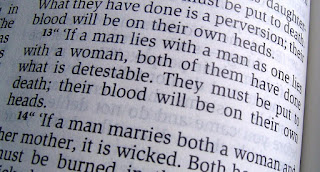What to do with the Psalms

I've recently picked up The Bible Jesus Read by Philip Yancey. Yancey is one of my favorite authors, but for some reason I've had this book for years and never finished it. In his chapter on the Psalms he shares some insights that I've found helpful for dealing with something that has bothered me about the Psalms.
There are places scattered among the 150 Psalms that say things like "God won't let anything bad happen to his chosen people" and "God will always protect you". But it doesn't take long to think of many times in history when incredibly bad things have happened to the Jews (the most recent being the Holocaust), or to Christians (as all over the world Christians are suffering persecution and martyrdom). What are we to do with these seemingly impotent promises that we find throughout the Psalms? How would a Christian arrested under Nazi germany make sense of Psalm 91's "He will cover you with his feathers, and under his wings you will find refuge...If you make the Most High your dwelling--even the Lord, who is my refuge--then no harm will befall you..."? Closer to home, how does a pastor explain to the parents whose baby has just been born with extreme birth defects or, even worse, whose child has died, that "no harm will befall them"?
Yancey quotes an article by Neal Plantinga in Christianity Today:
What Psalm 91 does is express one -- one of the loveliest, one of the most treasured--but just one of the moods of faith....On other days, and in other moods--in other and darker seasons of his life--this same psalmist might have called to God out of despair and a sense of abandonment (such as Jesus' cry from Psalm 22 from the cross).
Seeing each Psalm as a slice of the Christian's experience rather than a promise that I can claim helps to make sense of the Psalms in a way I've never really considered before.
Yancey goes on to point out the startling juxtaposition of Psalms 22 and 23, and Psalms 102 and 103. In both these cases, one of the Psalms has the author delighting in God's comforting presence, and the other startles the reader with it's despair and agony, crying out to a God that seems to have abandoned him.
Says Yancey: "I doubt many pastors choose to preach on either pairing of those consecutive psalms--one or the other, maybe, but not both. I have learned to appreciate Psalms precisely because it does encompass both points of view, often adjoined with no calming transition. 'Praise the Lord, O my soul, and forget not his benefits,' says Psalm 103. The author of its nearest neighbor is desperately trying to recall God's benefits, no easy task in his condition, bones burning like glowing embers, on a diet of ashes and tears....By itself, Psalm 23 leads to an easy-answer faith; by itself Psalm 22 leads to spiritual despair; together, the two offer a bracing mixture of realism and hope."
Since easy-answer faith no longer works for me, I'm thankful for this framework from which to enjoy the incredible variety of emotions and moods present in the Psalms. Seen through this "key" the 150 Psalms become a collection of writings that present the whole picture of what it means to be a disciple of Christ.


Comments